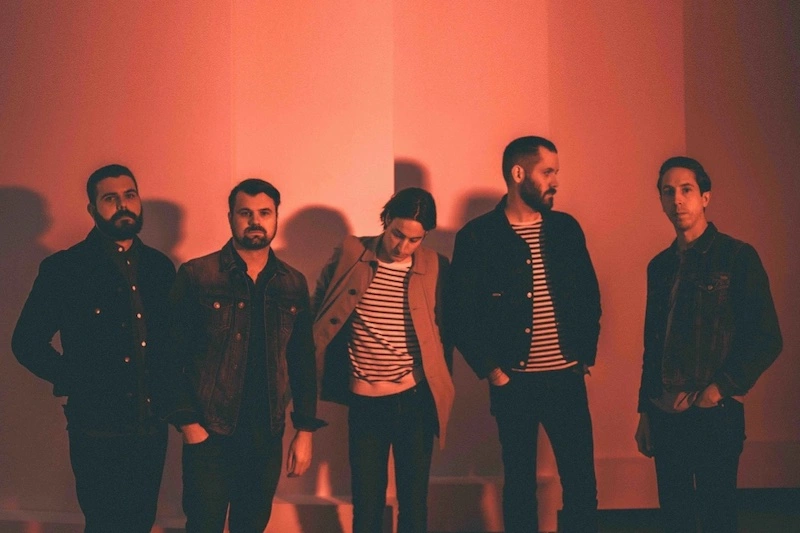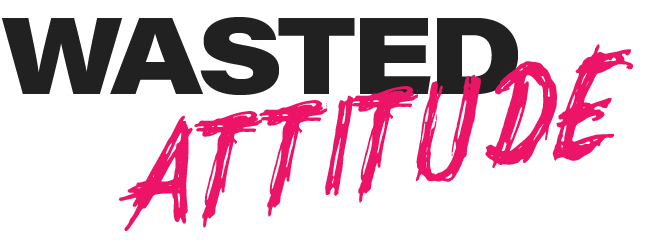Words: Jovana Joksimović
On their recent European tour, post-hardcore giants Silverstein played in Budapest, Hungary. Our friend from The Sound Remains Unclear podcats and Punkrock Travelers blog was there, and she did an amazing interview with Shane Told. They spoke about Silverstein, his solo project River Oaks, his own podcast Lead Singer Syndrome, and much much more.

So last night you were in Bratislava, right? So how did you like it? It’s not your first time there, is it?
Shane: No, we’ve been there before. It’s a nice city, you know, a lot of Eastern Europe is very beautiful.
So what city would be your favorite?
Shane: I like Budapest! Yeah, I think it’s one of the most underrated cities, you know, people, friends, they always say like ”I’m going to Europe, you know, where should I go? I got to go to like London or Paris.” Well yeah, but Budapest is a place you should check!
Yeah, it’s one of my favorites too, to be honest. So, when it comes to touring, you guys have been around for a while now and you’ve played with a lot of bands. What bands would you say you prefer playing with and you feel most yourself around and that you get along really well?
Shane: I think at this point it doesn’t matter to us. We’ve done every possible combination scenario of touring with bands that are really heavy or bands that are a lot softer than us. So for us, it’s like we kind of are comfortable in our own skin, we’re here for us and our own show, so we just try to make it work whatever environment we’re in.
Yeah. So after this European tour, you guys are pretty busy this summer, right, you’re going to Hawaii, then you’re in Australia with Comeback Kid, then you’re going back to Toronto. How do you find time for everything you’re doing right now for the band, for the practices, for the podcast, for your solo project?
Shane: Yeah it can be tough to manage all the different things, and then at the end of the day, just having time for myself, for my own kind of personal growth and my own, you know, mental stability and health and all that too. Um, but, the good thing is that, with every step of the way, I’m always able to do things remotely, so I can do a podcast when I’m on tour myself, I can make that work and I can work on other music when I’m on tour with Silverstein. So there are those kinds of things that work and you start to get, good at multi-tasking, all the time. And I think that just in today’s world, that’s a common thing. More common than not. So make it work, but it’s not, I’m not going to say it’s easy.
Right, right. So, um, as I said before, you guys have been around for a while, 18 years now, right around 18 years or something. You’ve got nine albums behind you if I’m right and you have been on different labels. So what’s different about Rise Records for you?
Shane: Well, every label we’ve been on has just been different and at the same time they’re still kind of the same, their job and their goal is the same too. They’re the ones that pay for our music and they’re the ones that put it out and they promote it and they try to sell albums and you know, that remains the same. But what’s always changing is just the music industry and the way that stuff’s done. When we started, the Internet, digital, especially streaming, didn’t exist. It was all CDs and vinyl and vinyl’s still a thing I guess. But, it’s the only thing that stayed constant. So we’re constantly trying to figure out what the best thing to do is, from the music business side, what label we should be on a, you know, in what ways do we need to promote our band and all that stuff. So we’ve changed labels for that reason, we were on Victory Records for a long time and then we did two or three records with Hopeless Records and two records with Rise. So, I think at the time that we’ve made the decisions to change, they were the right decisions based on just the ever-changing climate that is the music industry and even today it’s, it’s changing.
So.. ‘Dead Reflection,’ I personally found it different, more emotional, personal, and even vulnerable on another level. So was that the emotion and the sound that you were looking for or was it something completely different than you expected it to be?
Shane: You’re accurate, very accurate in how you’re describing it, but it wasn’t really something we were looking for. That’s just what it was and that’s all it could be because of where I was. At the time I was not in a good spot at all with some personal things and struggles and that record came out the way it came out because of that.
Yeah, I related to many of the songs.
Shane: Yeah and I think it’s relatable, but it’s not relatable because it’s trying to be relatable, just relatable because it’s real.
And it’s honest, I mean at least I see it that way.
Shane: Yeah it is, it is completely honest and I think that’s the approach that we took. I was like, I’m not in a great spot and it’s kind of hard to manage this, but instead of fighting against that and just trying to try to put on a smile and do what you think people want, just do what’s natural and react to it the way that most people would react to it. And I think that’s what we did and that’s why the record came out in all the ways that you described.
So when the record came out, I was in the States during the summer, I was working and I remember it was really a hard time for me. It was my second summer, but it’s hard to adjust, and then, you know, since I’m from Serbia and the States are all around the world and I remember ‘Mirror Box’ being the first song I heard, and um, it really hit me, I think it’s amazing.
Shane: Thank you! Thanks! It’s, you know, those songs are just kind of… You said the word vulnerable, which is a word I like because I think that really hits the nail on the head, you know. When you look deep inside yourself, you know, there are ways you can express yourself and sometimes, they’re not always so pretty. You know what I mean, the way that you’re feeling and stuff.
Right, well, tell me how long did it take you to take things into your own hands and start working on your solo project River Oaks? Was it an immediate feeling that it’s like, “yeah, this is what I’m supposed to do, what I should do” or were you insecure at first?
Shane: Well, it was something like, I’ve always been a guitar player and singer before when Silverstein started, I was in a punk band playing guitar and singing and I’ve always contributed a lot to Silverstein, like with guitar playing on the records and writing and stuff. So I think that, um, you know, I had the idea to do this for awhile and I was just busy with Silverstein and didn’t really think I have the time. And I just, I don’t know, I just never really could find the time to put it together. And after years and years and years I said “fuck it, I just gotta do it, I just have to do it; I know I can and it’s something that I really want to do.” And uh, I just went out and I did it and I recorded three songs with the producer Jordan Valeriote, and it came out great. And you know, now that’s kind of where I’m at with it, just deciding now what to do, it makes sense to move forward, but you know, we’ve been really busy with Silverstein, with my podcasts and stuff, so it tends to get pushed to the back of the list. But that’s OK. I’ve got my whole life to make music. (laughs)
You recently published your 125th, if I’m right, episode. So, when you had originally started the whole thing, did you plan to keep it continuously, to work on it or was it just like a hobby or like a side work or something to take your mind off while you’re busy with the band?
Shane: I wasn’t really sure at the beginning. You know, I had the idea and it was mostly from the name Lead Singer Syndrome, which I thought was funny. And at the same time though I thought, you know, the idea of a singer interviewing another singer doesn’t always happen. I never heard of that happening. So, just started doing it, and then after just a few weeks, people were really communicating with me how much they loved it and how excited they were every time I put one out. And really it’s just gone week by week since then I haven’t stopped other than like maybe a week off for Christmas or something like that, you know. So it’s kind of crazy just continuing to have these episodes and the feedback has been good. So I just kept doing it and now I have the All Access Club which, people that are supporting it monetarily are getting extra bonus episodes and all that stuff, too. So, all that stuff helps the show keep going and it’s been really, really good just for my own personal kind of growth and meeting new friends and all this stuff is cool, but at the end of the day, like, it just, it just feels good that so many people enjoy it.
Follow Silverstein:
Website: silversteinmusic.com
Facebook: facebook.com/silversteinmusic
Instagram: instagram.com/silverstein
Twitter: twitter.com/silverstein
Follow River Oaks:
Website: riveroaksmusic.com
Facebook: facebook.com/riveroaksmusic
Follow Lead Singer Syndrome:
Website: leadsingersyndrome.com
Facebook: facebook.com/leadsingersyn

